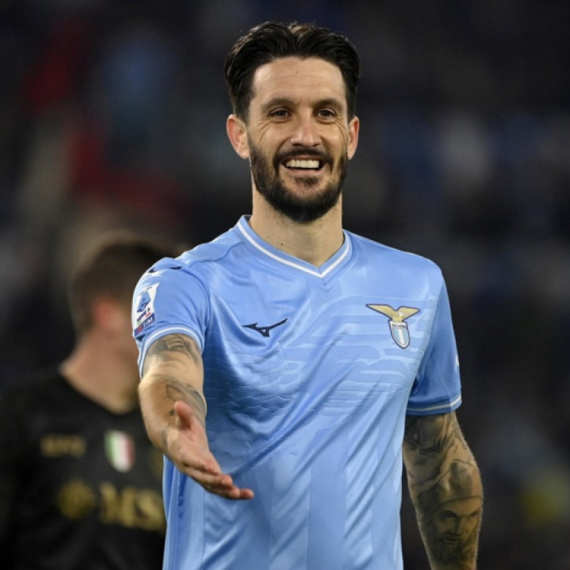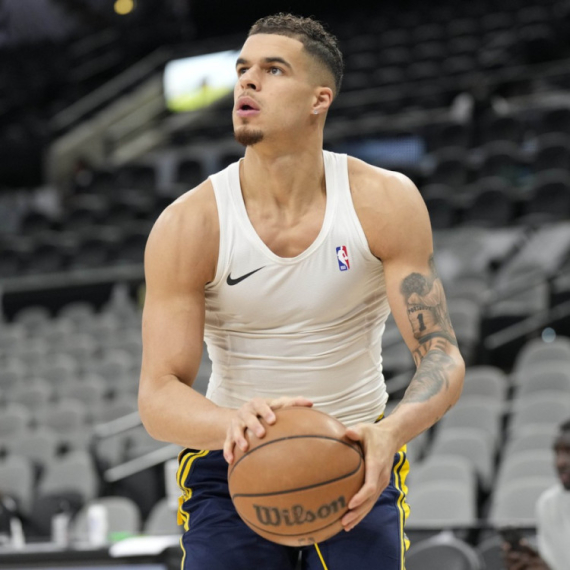Venezuela's Chavez cools rhetoric after vote loss
Fiery Venezuelan President Hugo Chavez has slowed his push for a socialist society.
Saturday, 05.01.2008.
10:06

Fiery Venezuelan President Hugo Chavez has slowed his push for a socialist society. He has overhauled his Cabinet and promised to build bridges to business leaders after an unprecedented poll defeat last month. Venezuela's Chavez cools rhetoric after vote loss Chavez made sweeping changes to his Cabinet team on Thursday night, promising to pay less attention to ideology and more to addressing widespread concerns about high crime and food shortages. Earlier this week, he pardoned opponents jailed or indicted for taking part in a 2002 coup that briefly ousted him, and he is now calling for an alliance with middle-class Venezuelans alienated by his tough rhetoric and pro-poor policies. The former paratrooper and fierce critic of the United States even says he wants to work with the business community he normally lambastes. "The businessmen, this national bourgeoise, we have to really try to help them feel part of the nation," he said late on Thursday. "Even if they are businessmen and are wealthy, let's have them invest in the country." Many Venezuelan businesses are frustrated by strict price controls that have led to product shortages, aggressive tax inspections and insults by the Chavez government. The catalyst for Chavez's New Year mellowing was voters' rejection in December of a package of reforms that would have allowed him to run indefinitely for re-election and given him sweeping powers to push through socialist reforms. Chavez replaced his combative vice president on Thursday night and reshuffled almost half of the Cabinet posts, including a new finance minister and mining minister. Outgoing Finance Minister Roberto Cabezas oversaw a period of double-digit inflation that overshadowed the oil-rich nation's fast economic growth. Opposition doubts While Venezuela's opposition welcomed the pardon for those involved in the failed coup, they distrust Chavez and are wary of his softer tone, saying he plans to revive the political reforms defeated in last month's referendum. "They want to create an atmosphere of prosperity, peace and understanding to see if they can still achieve the reform, this time through negotiation rather than imposition," said Ricardo Sucre, who campaigned for the opposition in the last election. Goldman Sachs senior economist Alberto Ramos said the referendum result had changed the president's tone. "Chavez is sounding more compromising and inclusive," Ramos said in a research note. "More attuned to the serious macro and social problems besetting the country." Chavez, who holds office until 2013, has made no secret of his desire to pass his reforms at a later date. But he has also promised to focus this year on the problems of his poor supporters, who complain of trash in the streets and high crime in slums around the country. He may attempt to shore up his support base and strengthen a new political party that some allies say was not ready in time for the referendum and failed to mobilize voters. Chavez is still hugely popular with the poor who make up half the population, but many were not convinced by his push for wider powers and are frustrated by high crime rates, corruption, and long lines for basic products like milk.
Venezuela's Chavez cools rhetoric after vote loss
Chavez made sweeping changes to his Cabinet team on Thursday night, promising to pay less attention to ideology and more to addressing widespread concerns about high crime and food shortages.Earlier this week, he pardoned opponents jailed or indicted for taking part in a 2002 coup that briefly ousted him, and he is now calling for an alliance with middle-class Venezuelans alienated by his tough rhetoric and pro-poor policies.
The former paratrooper and fierce critic of the United States even says he wants to work with the business community he normally lambastes.
"The businessmen, this national bourgeoise, we have to really try to help them feel part of the nation," he said late on Thursday. "Even if they are businessmen and are wealthy, let's have them invest in the country."
Many Venezuelan businesses are frustrated by strict price controls that have led to product shortages, aggressive tax inspections and insults by the Chavez government.
The catalyst for Chavez's New Year mellowing was voters' rejection in December of a package of reforms that would have allowed him to run indefinitely for re-election and given him sweeping powers to push through socialist reforms.
Chavez replaced his combative vice president on Thursday night and reshuffled almost half of the Cabinet posts, including a new finance minister and mining minister.
Outgoing Finance Minister Roberto Cabezas oversaw a period of double-digit inflation that overshadowed the oil-rich nation's fast economic growth.
Opposition doubts
While Venezuela's opposition welcomed the pardon for those involved in the failed coup, they distrust Chavez and are wary of his softer tone, saying he plans to revive the political reforms defeated in last month's referendum."They want to create an atmosphere of prosperity, peace and understanding to see if they can still achieve the reform, this time through negotiation rather than imposition," said Ricardo Sucre, who campaigned for the opposition in the last election.
Goldman Sachs senior economist Alberto Ramos said the referendum result had changed the president's tone.
"Chavez is sounding more compromising and inclusive," Ramos said in a research note. "More attuned to the serious macro and social problems besetting the country."
Chavez, who holds office until 2013, has made no secret of his desire to pass his reforms at a later date.
But he has also promised to focus this year on the problems of his poor supporters, who complain of trash in the streets and high crime in slums around the country.
He may attempt to shore up his support base and strengthen a new political party that some allies say was not ready in time for the referendum and failed to mobilize voters.
Chavez is still hugely popular with the poor who make up half the population, but many were not convinced by his push for wider powers and are frustrated by high crime rates, corruption, and long lines for basic products like milk.































Komentari 0